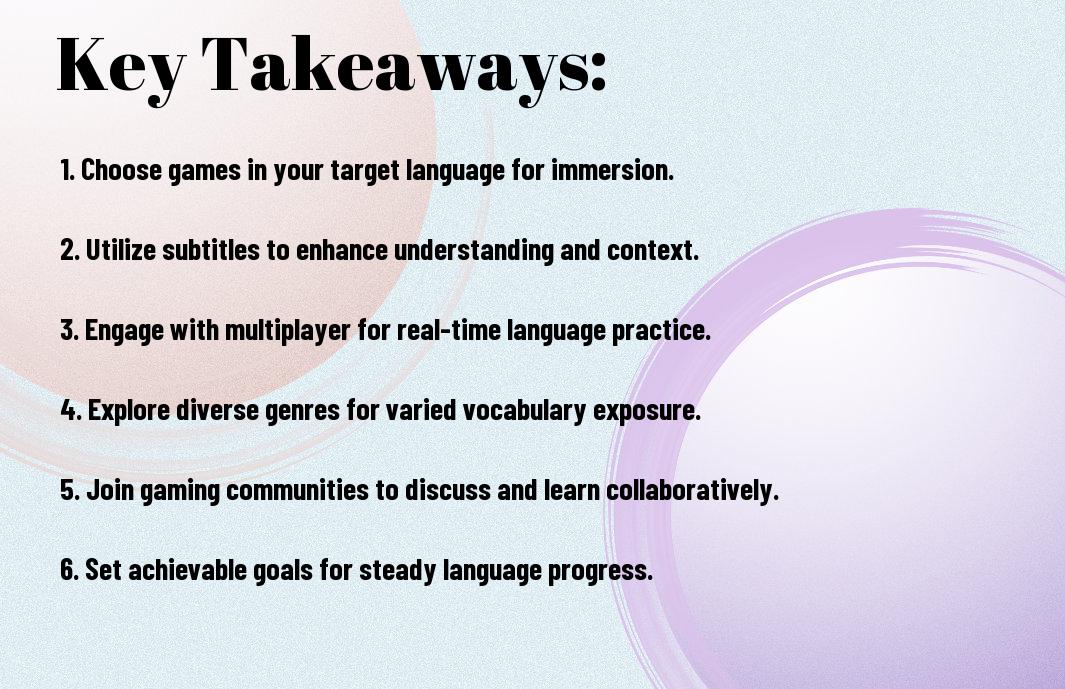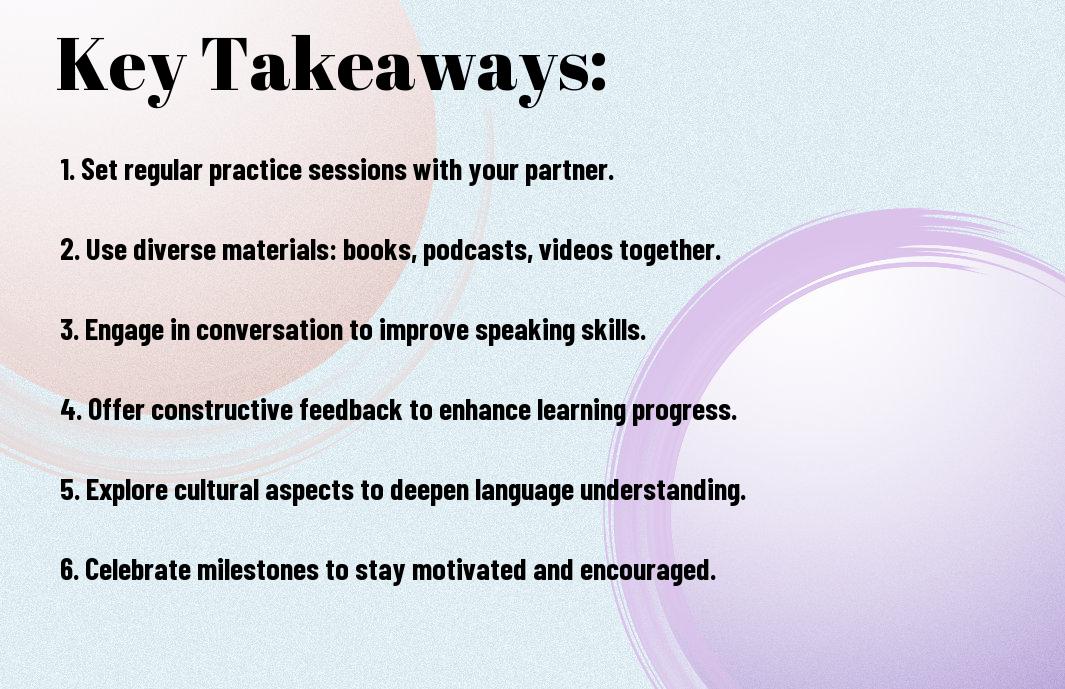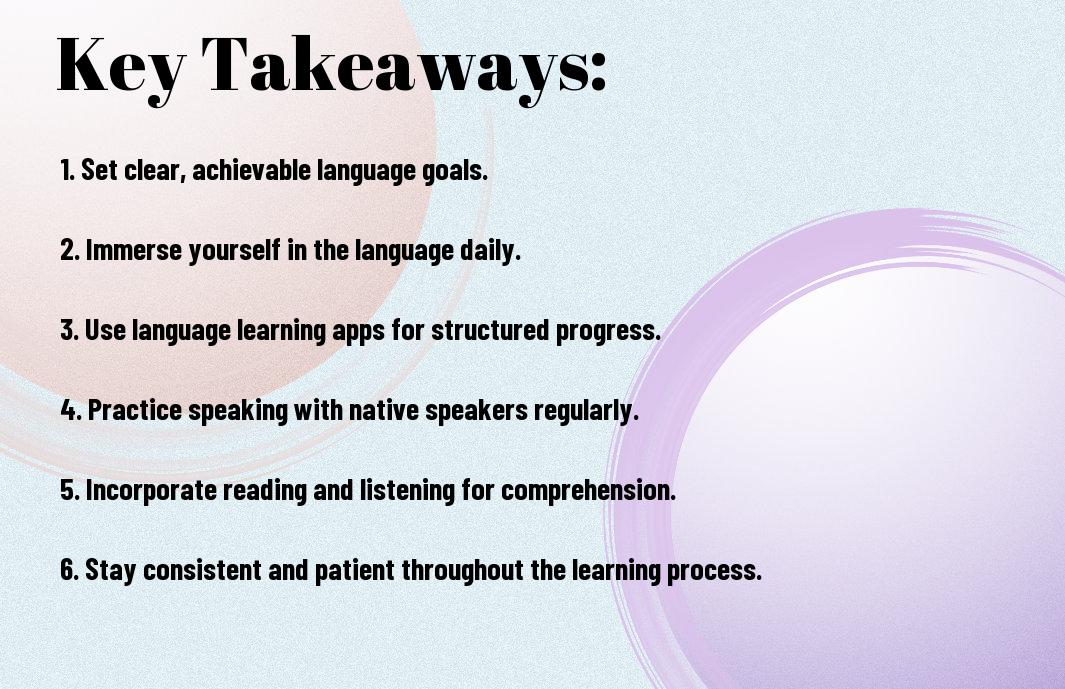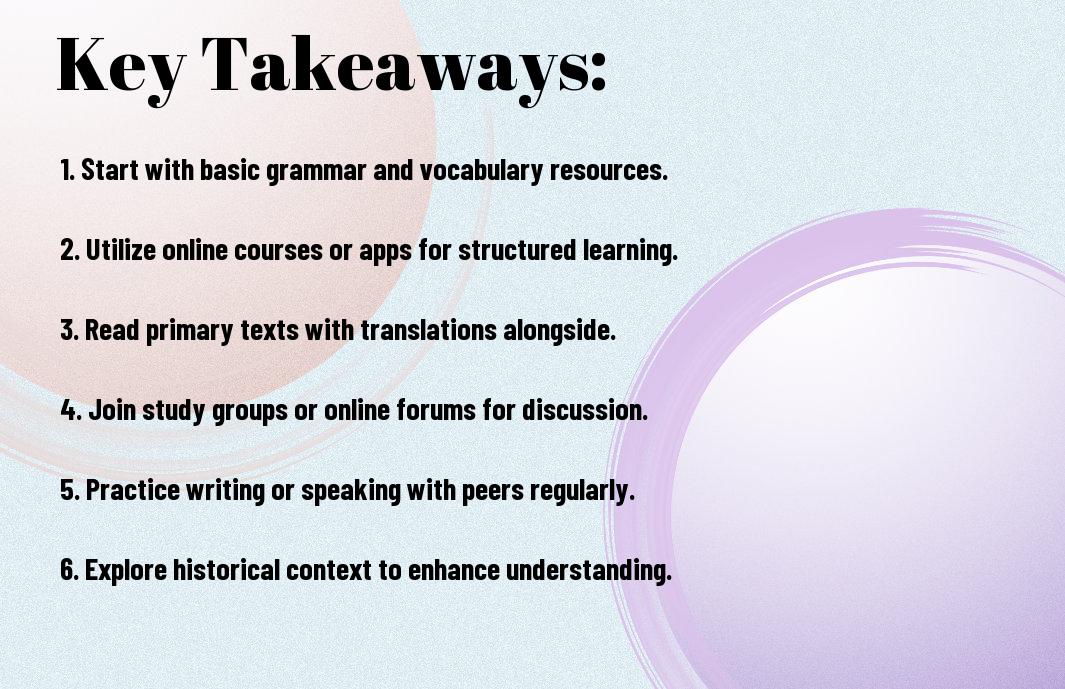You can acquire a new language in an engaging and entertaining way by leveraging your gaming habits. As you play games in a target language, you’ll be exposed to authentic dialogue, vocabulary, and syntax, enhancing your comprehension and pronunciation skills. Your language learning process will become more enjoyable and interactive, allowing you to pick up new phrases and expressions naturally, and you’ll be motivated to continue learning and improving your language abilities.

Key Takeaways:
- Immerse yourself in the language through gaming by playing games with native speakers, which can help you pick up vocabulary and pronunciation more naturally.
- Choose games with interactive storylines and engaging dialogue to keep you motivated and interested in learning the language.
- Use language learning apps and tools in conjunction with gaming to supplement your learning and practice new skills.
- Focus on listening and speaking skills by playing games that require you to communicate with other players or characters in the game.
- Set achievable goals and track your progress to stay motivated and see the improvement in your language skills over time.
Getting Started
Before you begin learning a language through gaming, it’s vital to understand how video games can aid in language acquisition. You can learn more about this topic by visiting Video Games Turn Into Language Learning Games — How? to discover the benefits of using games for language learning.
Choosing the Right Games
About the type of games you should play, you’ll want to select those that align with your interests and language level, ensuring an enjoyable and effective learning experience.
Setting Language Learning Goals
Setting clear objectives is vital for your language learning journey. You should define what you want to achieve, whether it’s improving vocabulary or enhancing pronunciation.
Considering your goals, you’ll be able to choose the most suitable games and track your progress, allowing you to adjust your strategy and stay motivated throughout the learning process, helping you to make the most out of your language learning experience through gaming.

Immersion Techniques
The key to language learning through gaming is to surround yourself with the language you want to learn, and games provide an immersive environment to do so.
Playing Games with Native Speakers
With fellow gamers who speak the language, you can engage in conversations and interactions that help you learn and improve your skills.
Using In-Game Chat and Voice Communication
By utilizing in-game chat and voice communication, you can practice your reading, writing, and speaking skills in a dynamic and interactive way.
Speakers of the language you’re learning will help you pick up on nuances and expressions that might not be taught in a traditional classroom setting, and you’ll be able to learn from your mistakes and improve your pronunciation by interacting with them in real-time, which will enhance your overall language learning experience.
Language Learning Strategies
After immersing yourself in a game, you’ll need to develop strategies to learn the language effectively. You’ll want to focus on vocabulary, grammar, and pronunciation to improve your skills.
Focusing on Vocabulary and Grammar
On the path to language mastery, you’ll encounter various vocabulary and grammar rules. You can use in-game subtitles, translations, and language learning apps to aid your learning process.
Practicing Active Listening and Speaking
For instance, you can engage in conversations with non-playable characters or other players to practice your speaking skills. You’ll also improve your listening skills by paying attention to the game’s audio and dialogue.
It is imperative to practice active listening and speaking regularly, as this will help you develop your pronunciation, intonation, and comprehension skills. You can replay game scenes or dialogues to improve your understanding of the language, and you can also try to repeat what the characters say to practice your speaking skills. As you progress, you’ll become more confident in your ability to communicate in the target language.
Game Selection
Now that you’re interested in learning a language through gaming, it’s time to choose the right games. You’ll want to select games that fit your interests and language level. With so many options available, you can find games that match your learning style and goals.
Role-Playing Games for Storytelling and Dialogue
The most engaging games for language learning are often role-playing games. They provide an immersive experience, allowing you to interact with characters and engage in conversations, which helps you develop your listening and speaking skills.
Puzzle Games for Cognitive Development
The complexity of puzzle games makes them an excellent choice for cognitive development. They challenge your brain, improving your problem-solving skills and memory, while also teaching you new vocabulary and phrases in the target language.
This type of game requires you to think critically and make connections between words and concepts, enhancing your overall language comprehension. As you progress through levels, you’ll encounter new words, phrases, and grammar rules, helping you to build a strong foundation in your target language. You’ll find that puzzle games make learning a language an enjoyable and rewarding experience.
Overcoming Challenges
To learn a language through gaming, you will inevitably face obstacles, but with persistence and the right strategies, you can overcome them and achieve your goals.
Dealing with Frustration and Burnout
Toward the end of a long gaming session, you may feel frustrated or exhausted, but taking breaks and setting realistic goals can help you stay motivated and focused on your language learning objectives.
Finding Language Learning Communities and Resources
With access to online forums, social media groups, and language learning platforms, you can connect with other gamers and language learners, share tips, and find resources to support your language learning journey.
In fact, joining a language learning community can be a great way to stay engaged and motivated, as you can participate in discussions, ask questions, and learn from others who are also learning a language through gaming, and you can also find resources such as language learning guides, tutorials, and podcasts that can help you improve your language skills.
Staying Motivated
For language learners, staying motivated is key to making progress. You can achieve this by setting achievable goals and rewarding yourself for milestones reached, which will help you stay engaged and encouraged throughout your language learning journey.
Tracking Progress and Celebrating Milestones
Besides setting goals, tracking your progress is important to seeing how far you’ve come. You can use language learning apps or journals to monitor your advancement, and celebrate your milestones to stay motivated and focused on your goals.
Exploring Different Game Genres and Styles
Meanwhile, milestones in your language learning journey can be marked by exploring different game genres and styles. You can try out various types of games, such as role-playing games or strategy games, to find what suits your learning style and keeps you engaged.
It is interesting to note that exploring different game genres and styles can help you stay motivated and prevent boredom. You will discover new ways to learn and practice your language skills, such as interacting with non-playable characters, reading dialogue, or listening to voiceovers, which will make your language learning experience more enjoyable and effective.
Conclusion
Ultimately, you can effectively learn a language through gaming by immersing yourself in the language and engaging with native speakers. As you progress through games, your vocabulary and grammar skills will improve, enhancing your overall language proficiency. You will find that gaming makes language learning an enjoyable experience, allowing you to stay motivated and committed to your goals, and facilitating your ability to communicate effectively in your target language.
FAQ
Q: What are the benefits of learning a language through gaming?
A: Learning a language through gaming offers several benefits. It makes the learning process engaging and fun, allowing you to pick up new vocabulary and grammar rules in a more effortless and enjoyable way. Games often provide an immersive experience, simulating real-life conversations and scenarios that help improve your listening, speaking, reading, and writing skills. Moreover, gaming can offer immediate feedback and correction, helping you to improve your pronunciation and language usage effectively.
Q: How can I get started with learning a language through gaming?
A: To get started with learning a language through gaming, you first need to choose a game that supports your target language. Many popular video games offer multiplayer options or storylines in various languages. You can start by playing games with in-game language options, adjusting the settings to your target language to immerse yourself in it. Additionally, consider playing games that are originally produced in your target language, as these can provide the most authentic language experience. Using language learning apps that incorporate gaming elements can also be a great starting point, as they often include interactive lessons and exercises.
Q: Can I become fluent in a language solely through gaming, or do I need additional study methods?
A: While gaming can be a highly effective tool for learning a language, it is unlikely to make you fluent on its own. Language learning is a complex process that requires practice in all skill areas, including reading, writing, speaking, and listening. Gaming can cover some of these areas, particularly listening and reading, but may not provide enough opportunities for writing and speaking practice. To become fluent, it’s advisable to supplement your gaming with other learning methods, such as language exchange programs, language classes, or traditional textbook study. This balanced approach will help ensure you develop a well-rounded understanding and mastery of the language.







